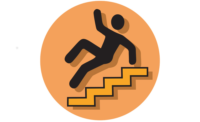How to protect yourself against escalating public violence
3 tips for dealing with a new age of aggression
For the second consecutive year, crimes including assault, robbery, theft, burglary and rape have increased, according to a recent National Crime Victimization Survey published by the Bureau of Justice Statistics. The two-year ascension ends a two-decade decline.
Violent crimes surged the most – by 15 percent. Perhaps more disturbing, however, is how creative brutality and aggression have become, says Timothy Dimoff, an expert in personal and corporate security.
“Society has changed. What once was considered very inappropriate or even taboo behavior is now accepted as the norm – even considered justified by some,” says Dimoff, founder and president of SACS Consulting & Investigative Services, Inc., (www.sacsconsulting.com), which analyzes and overhauls security for large public and private facilities.
“Social behavior, once mostly predictable, has become largely unpredictable. When should you be vigilant? In public and at work – always.”
Dimoff reviews some frightening new trends in random violence, and what you can do to protect yourself against them.
• The “knockout game.” Cell phone videos have captured numerous incidents across the country in which groups of teens and young adults prey on unsuspecting passersby. The “game” is to knock out a stranger with a single blow to the head.
• Protective measures: The best way to defend against an ambush is to avoid it. Be aware of your vulnerabilities and take measures to decrease them. The victims in the knockout attacks have been people walking alone and making little or no effort to be aware of their surroundings. Be aware of who’s around you, keep your distance from unknown or strange people, or ask a coworker to walk you to your car.
• Cyberbullying. Middle school and high school are traditionally a difficult place and time for many, but now, cruel attacks by bullies can follow students 24 hours a day, on campus and off. Cyberbullying includes intimidating messages, humiliating rumors and images spread on social networking sites, false profiles and more. To make matters worse, the bully recruits others to “join in the fun” of constant negative cyber attacks to a selected target. From September 2012 to September 2013, at least nine teenagers’ suicides were linked to cyberbullying on just one social network, Ask.fm.
• Protective measures: Children do not understand the importance of boundaries as well as adults do, so it’s imperative that parents establish appropriate online behavior with their kids. Help them post and filter content intelligently; make sure that what they post will not be used to embarrass them. Also, ensure that passwords are kept secret. Let your kids know that you will be monitoring their networks for their safety and if they protest that’s an invasion of privacy, remind them social media is public (and suggest they keep a written journal.)
• Real violence at movie theaters. There have been more than 60 mass shootings nationwide since 1982 -- and almost half of them occurred just since 2006. The first mass shooting in a movie theater occurred in 2012 and seemed like a tragic, random fluke -- the crazed violence of a mentally deranged young man. However, any sense of security created was shattered in January when a respected retired police officer annoyed with another patron’s texting was accused of shooting and killing him.
• Protective measures: By now, movie theater management should know the necessity of a visible security presence, with staff stationed in darkened theaters to ensure the civility of the audience. A confrontation over what one patron perceives to be annoying behavior can quickly escalate, so adhere to the rules of etiquette and if that’s not possible (such as a crying child), remove yourself from the situation.
When you enter a theater, or any public gathering place, make note of exits and consider what you would do if you needed to intervene to stop an attack, defend yourself and/or your family, escape or distance yourself from the threatening situation. Always have a plan just in case!
“Whether we’re talking about personal or corporate security – or safety at home, schools, churches and nonprofits – it should be clear to everyone that security is no longer a spectator’s sport,” Dimoff says. “We all need to take responsibility for our safety.”
Looking for a reprint of this article?
From high-res PDFs to custom plaques, order your copy today!





